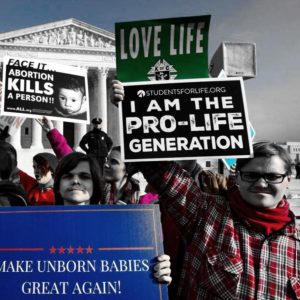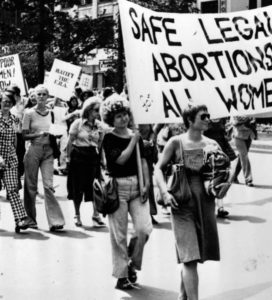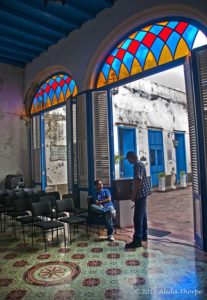Podcast: Play in new window | Download
Analyzing Recent Abortion Legislation
Halfway through 2019 nine states have already passed bills to limit abortion. Louisiana recently passed a ban on the medical procedure after a fetal heartbeat is detected. That makes it the 9th state in 2019 year to pass abortion restrictions that could challenge the constitutional right established in Roe v.Wade.
Alabama legislators also recently voted to ban abortions in nearly all cases. Other measures, like Louisiana’s, have limited the procedure to earlier in pregnancy, typically around six weeks.
Georgia, Kentucky, Louisiana, Missouri, Mississippi and Ohio stopped short of outright bans. They’ve passed so-called heartbeat bills that effectively prohibit abortions after six to eight weeks of pregnancy. That’s when doctors usually start detecting a fetal heartbeat. Utah and Arkansas voted to limit the procedure to the middle of the second trimester.
Most other states follow the standard set by the Supreme Court’s 1972 Roe decision, which says abortion is legal until the fetus reaches viability, usually at 24 to 28 weeks.
The latest bans are not yet in effect (Kentucky’s was blocked by a judge), and all bans are expected to face protracted court battles. What does all this mean? More states are considering and will likely pass measures similar to that in Louisiana in an attempt to challenge Roe v. Wade.
Guest – Attorney Elisabeth Smith from the Center for Reproductive Rights. Elisabeth is their Chief Counsel for State Policy. Before that she was Legislative Director at the ACLU of Washington where she was the Legislative Director.
—-
Cuban Revolution 60th Anniversary And The 1996 Helms-Burton Act
July 26, 2019 marks the 60th anniversary of the Cuban revolution. On that date revolutionary troops led by Fidel Castro and Che Guevara marched into Havana. The American supported dictator Batista fled to the Dominican Republic. Other rich Cubans went to Miami. At that time the wealth of Cuba, it’s vast fertile sugarcane and tobacco fields, it’s oil refinery, its phone company, were owned by US corporations and a handful of wealthy Cubans.
To obstruct the revolution, the US owned oil refinery stopped providing oil so there was no gasoline. In response, the Cuban revolutionaries nationalized the refinery, then the phone company, the nickel mines, and the vast land holdings. This was the beginning of the Cuban revolution The Cuban government offered to pay the owners for the nationalized property in the amount that the owners had listed the properties for tax purposes. The owners refused to take the money. Since then the American government has waged economic warfare on Cuba.
In an escalation of this warfare Last week we saw the instigation of the dormant title III section of the anti-Cuba 1996 Helms-Burton Act. This law permits US citizens to sue anyone anywhere in the world in American Courts for using property legally expropriated by the Cuban government after the revolution. Expropriation of a foreign owned property is legal under international law so long as the owners are compensated.
In addition to the invocation of the Helms-Burton law the US government has ended people to people travel to Cuba and drastically reduced the amount of money Cuban Americans living in the US can remit to their families on the island.
Guest – Netfa Freeman, policy analyst with the Institute for Policy Studies and an Organizer in the International Committee for Peace Justice & Dignity.
———————————–
———————————–




